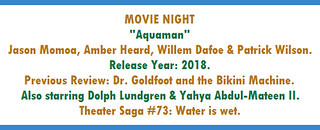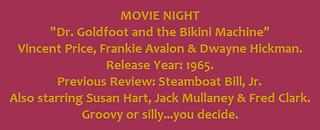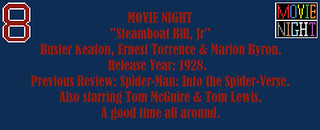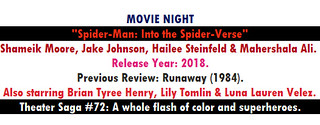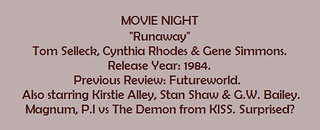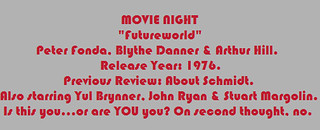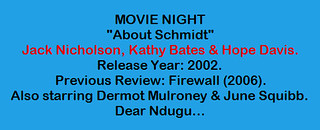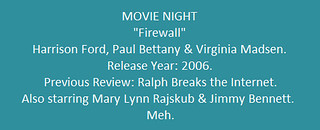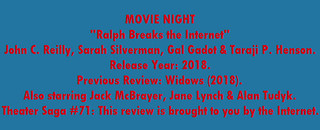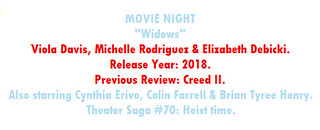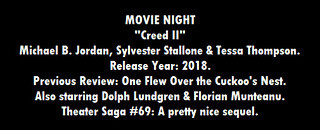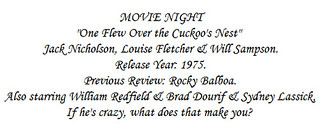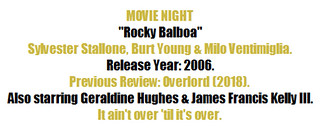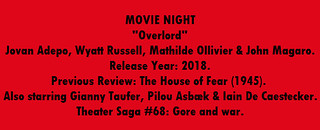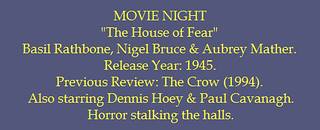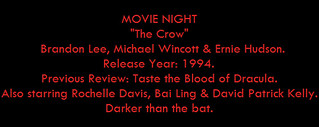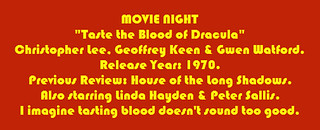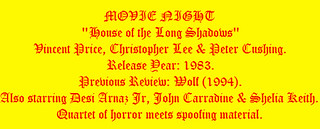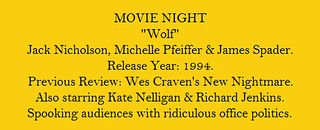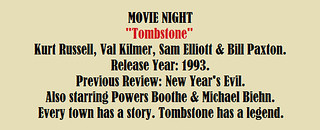
Review #1177: Tombstone.
Cast:
Kurt Russell (Wyatt Earp), Val Kilmer (Doc Holliday), Sam Elliott (Virgil Earp), Bill Paxton (Morgan Earp), Powers Boothe ("Curly Bill" Brocius), Michael Biehn (Johnny Ringo), Charlton Heston (Henry Hooker), Jason Priestley (Billy Breakenridge), Jon Tenney (Sheriff Johnny Behan), Stephen Lang (Ike Clanton), Thomas Haden Church (Billy Clanton), Dana Delany (Josephine Marcus), and Paula Malcomson (Allie Earp), with narration by Robert Mitchum. Directed by George P. Cosmatos (#818 - Rambo: First Blood Part II)
Review:
On October 26, 1881, a shooutout occurred between lawmen and outlaws near the O.K. Corral in Tombstone, Arizona, resulting in three deaths. It later became known as one of the most famous shooutouts of the Wild West, in part due to Stuart Lake's biography Wyatt Earp: Frontier Marshal, written in 1931 that told the tale of one of the participants. Although it is now known as largely fictional by researchers, it served the basis for films such as My Darling Clementine (1946) while helping to elevate Earp into a mythic icon. In any case, Kevin Jarre was slated to write and direct this film to tell the tale of the gunfight alongside the people involved in the shootout. However, a month into production he was fired from the directing chair due to falling behind in the shooting schedule. Cosmatos was hired to replace him, while scriptdoctor John Fasano helped in trimming the story to focus more on the Wyatt-Doc dynamic. It may interest you to know that six months after the release of the film came Wyatt Earp (1994), which starred Kevin Costner that wasn't as successful. The best thing that can be said about this movie is that it has plenty of entertainment value for a Western, having a good balance of action and story to make a solid experience. The ensemble cast is up to the task of making these characters come alive without feeling generic or getting lost in the shuffle. The music from Bruce Broughton (composer of a film previously covered in Silverado) also stands to the task of swift adventure. Russell shines fairly well, being quite capable at giving his role a fair sense of depth that makes him feel more than just a lawman, particularly when conversing with his on-screen brothers (Elliot and Paxton, who are efficient) or with Kilmer. I particularly like the sequence when he deals with an unruly gambler (played by Billy Bob Thornton) without even having to shoot a gun. Kilmer (complete with a Southern drawl) is quite excellent as well, being quite watchable with plenty of charm to go around. Boothe shines well as one of the adversaries the movie presents, but it is Biehn who also proves efficient in making a worthy opponent for the final showdown. The supporting cast is fine, although the movie's key strength relies more on Earp in action than when he is sharing time with either of the women in his life. The film works well before and after the Corral gunfight, keeping interest through its 130 minute runtime with minimal moments of tedium. The film seems to have plenty of craftsmanship and effort done to make something that doesn't feel like a manufactured tale made for a cheap thrill, having a finely told story with plenty of interesting things to go around. It isn't a great Western classic, but it is a well made and well done movie that can work for anyone looking for an old legend put to film.
Happy New Year folks. Hoping 2019 is just as productive as 2018 was.
Overall, I give it 8 out of 10 stars.


